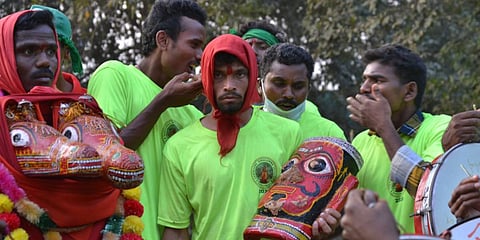

HYDERABAD: J Shiva Ganesh, a tribal from Rangapuram village of Govindraopet mandal in Mulugu district, is the legal heir to his grandfather's 10.5 acre land. Of this land, five acres is patta land for which he has been getting assistance through the Rythu Bandhu scheme. The rest is ancestral land for which he had pahanis.
However, non-tribals have been in the possession of the entire property. A post-graduate in MSc (Zoology), Shiva took the pahanis and all the proofs showing that the land belonged to him to the ITDA programme officer of Eturnagaram to make a claim to his ancestral land.
Orders were issued in his favour after the panchnama was done. As the MRO was supposed to implement the order, Shiva went to him, only to be threatened by the non-tribal illegal occupants, who warned him against pursuing the case.
The very spirit of the Telangana State Scheduled Areas Land Transfer Act, which was amended from time to time till 1978, was that transfer of land in tribal areas from tribals to non-tribals or vice-versa cannot be done in scheduled areas. Yet, there are many instances similar to Shiva’s case.
As per the Tribal Welfare Department’s data, a total of 53,022 cases have been booked so far concerning 2,08,512 acres, of which 52,075 cases covering 2,05,431 acres have been disposed of. The number of cases decided in favour of STs were 31,279, of which land was physically restored to tribals in 22,706 cases.
This means as per the official records, only 24,064 acres are yet to be restored to tribals across the State. But the situation on the ground is on the contrary, claim activists.
"After issuing orders and conducting a panchnama, the land is being shown as physically restored to the tribals by the ITDA. But then the burden of taking possession of the land falls on the tribal and not on the non-tribal in unlawful possession," claimed Dr Ch Kishore Kumar, a tribal rights activist and an Associate Professor in Osmania University.
"So unless some kind of protection is given to tribals and monitoring is done to check who is in possession from time-to-time, Land Transfer Regulation (LTR) cases cannot be resolved," he added.